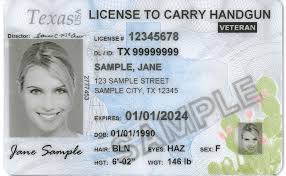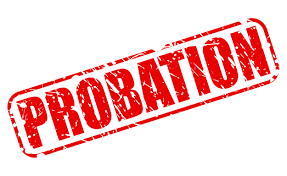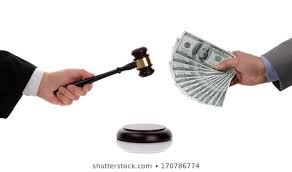DWI Lawyer Straight Talk
 DWI Lawyer Straight Talk
DWI Lawyer Straight Talk
The following questions are normal questions that most everyone thinks about when it comes to hiring a DWI lawyer or a criminal defense lawyer. Granted, not everyone is intoxicated but for those who are, this is a very embarrassing experience. Even when it comes to other types of offenses, it is natural to feel shame. I hope the following will help you.
-
I am afraid that my DWI Lawyer will think that I am an idiot/stupid/wild/crazy… when the offense happened, and I don’t want to have to go over the evidence with her.
Please know that what makes us human is a wide range of feelings in an impossible to count number of circumstances. When you throw alcohol or other substances in the mix that alters one’s judgments, things can go out of control. I like to start off my evaluations in DWIs by explaining “Please don’t be embarrassed. If you look intoxicated, I can assure you that I have looked worse. Trust me.” With shameful or embarrassing situations, my job is to help not judge. I keep a box of Kleenex in my office, and it is used often during emotional moments. These emotional moments are important because I am trying to get to the root of problems, issues, and everything I can to help my client.
-
What if I don’t want my DWI Lawyer to know the truth? Can I present a false narrative that will get me out of this? Will she suspect it? What happens if she catches me lying to her?
I have been doing this for 26 years and have raised four children and taken in more. I have tried over 400 cases (mostly jury trials) and spend a lot of time with people talking, learning, and smoking cigars. Much like one of our country’s best Supreme Court Justices John Marshall, I am a people person. He spent hours in the Founding Father days of the 1700s in taverns, me- in cigar shops. By this, I mean that reading people comes with knowing and loving people. When you have a handle on people, spotting falsehoods and lies comes naturally. It is my job to read jurors and know what matters to them. I do not hesitate to tell my clients when I disagree with them or find what they are saying to be untruthful. My job is to help, not hurt.
First of all, ethically you cannot lie in law. Second of all, those who think they can are only fooling themselves. A lot of what I do is deliver “straight talk”. It’s my job. If I didn’t call a spade a spade, I would not be able to help my clients. When it comes to the law, repercussions are very serious. You would never let a loved one walk off a cliff to their demise. Same.
I feel committed to doing the very best I can for each client, and this necessitates they tell me the truth. When they don’t, I call it like it is. It’s what I do. You can’t get to solutions until you uncover the problems. I don’t blame anyone for trying to pull one over on me or resent them for it, just expect me to call you out so we can get on with what matters and getting the best result. There is not much I have not seen in 26 years. Not much surprises me.
-
When the case is over, how will I feel about my lawyer? What if I see her at a restaurant? I don’t want her acknowledging I was her client. I don’t want to feel embarrassed.
There are ethical rules of confidentiality. Trust me, I am much more concerned that you do not feel offended if I don’t recognize you! I have a laser focus which makes me very guilty of being one track minded or “in the zone” very often (especially if I am in the middle of a trial, going to court, etc.). I appreciate each one that has given me an opportunity to help in the past 26 years and I thank you very much. Though I know we can’t always get the result we wanted, I do hope you know you are very much cared for by a very dedicated and concerned me.
There are about 2 degrees of separation one from the other in the metroplex when it comes to me. I have helped over 5,000 people and have had my billboards up for decades. I frequently encounter folks who take one look at me and say, “I know I know you from somewhere” (from the billboards). Me and my kids were born and raised here. My tentacles run deep and long into all Dallas – Ft. Worth. Chances are people won’t think it is anything but a social network that runs long and deep over 3 generations. So, take a breath, I won’t mention anything, and I hope you won’t feel offended if have to remind me!
More about Mimi Coffey & The Coffey Firm
When people look for a Top DWI Attorney or Best DWI Attorney, they look for experience, certification, and respect in the legal community. Mimi Coffey is a nationally-renowned trial attorney, board-certified in DWI by the NCDD. She has been practicing for over 24 years and is an author of multiple DWI Defense textbooks. She is also a national and state-wide lecturer on the law.
The Coffey Firm handles a wide variety of cases, including Unlawful Carrying Weapon (UCW), Assault (including family violence), and Possession charges. We can also help you try to get a DWI off your record or avoid probation revocation. The Coffey Firm offers fair DWI payment plans and free consultations.
Mimi is also listed on several “top criminal lawyer near me” directory listings such as Wise County DWI Lawyers, Tarrant County DWI Lawyer, Dallas County DWI attorney, Collin County DWI attorneys and Parker County DWI attorneys. Mimi is a caring DWI Lawyer in Dallas – Fort Worth. She is also involved in the Texas Tech School of Law foundation and enjoys using the skills she has developed to give back to the community.


 By now the phrase “Constitutional Carry” likely sounds familiar. The general idea is that individuals can now carry a handgun without a license. But, what exactly is going on between
By now the phrase “Constitutional Carry” likely sounds familiar. The general idea is that individuals can now carry a handgun without a license. But, what exactly is going on between  Be wary about the effect of the
Be wary about the effect of the  Most of us who watch television or movies are likely familiar with the phrase “life without the possibility of parole”. We might also be familiar with the “death sentence”. But what exactly is parole? The easiest illustration, though not fully accurate, is that it is a type of probation.
Most of us who watch television or movies are likely familiar with the phrase “life without the possibility of parole”. We might also be familiar with the “death sentence”. But what exactly is parole? The easiest illustration, though not fully accurate, is that it is a type of probation. Did you know that it is possible for the court to give you Early Release from Probation in most cases? As long as you keep up with all of the conditions, the law does allow probation to end early. There are two main opportunities for the judge to review your record for early release: Discretionary and “Mandatory”.
Did you know that it is possible for the court to give you Early Release from Probation in most cases? As long as you keep up with all of the conditions, the law does allow probation to end early. There are two main opportunities for the judge to review your record for early release: Discretionary and “Mandatory”. After a Texas UCW arrest, police usually seize your gun. But, what happens to the weapon after the Texas UCW case ends? The answer is not very clear. Texas Code of Criminal Procedure 18.19 states the rules regarding what happens to seized weapons.
After a Texas UCW arrest, police usually seize your gun. But, what happens to the weapon after the Texas UCW case ends? The answer is not very clear. Texas Code of Criminal Procedure 18.19 states the rules regarding what happens to seized weapons. Despite having many problems,
Despite having many problems,  After a Texas DWI Arrest, many questions probably race through your mind, such as:
After a Texas DWI Arrest, many questions probably race through your mind, such as: